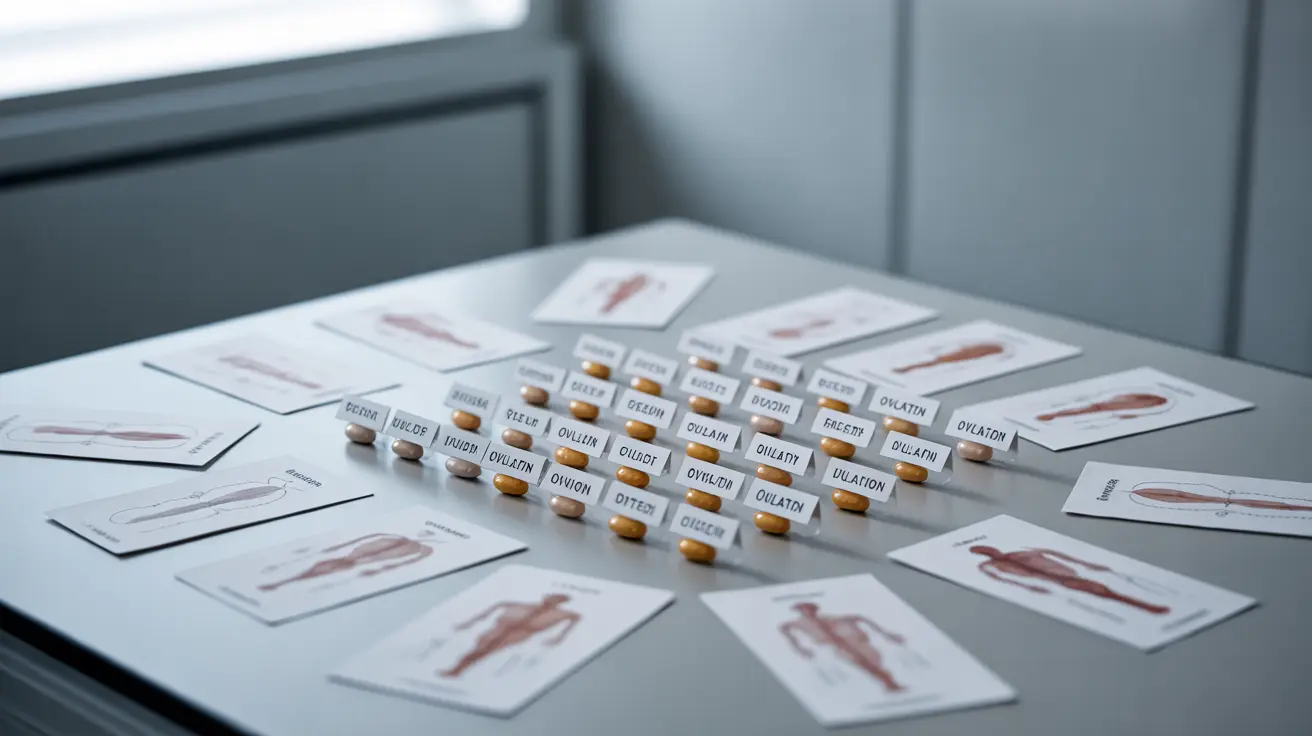For many people using hormonal birth control, understanding how these medications affect their natural menstrual cycle and ovulation is crucial. Birth control pills are designed to prevent pregnancy primarily by stopping ovulation, but the effectiveness and mechanism can vary depending on the type of birth control used and how consistently it's taken.
This comprehensive guide explores how different birth control methods affect ovulation, what happens if you miss a dose, and what symptoms you might experience while on birth control.
How Birth Control Pills Prevent Ovulation
Birth control pills work through carefully balanced hormones that prevent pregnancy in several ways, with stopping ovulation being the primary mechanism. The combination of estrogen and progestin in most birth control pills works to suppress the hormonal signals that typically trigger egg release from the ovaries.
Combination Pills and Ovulation
When taken correctly, combination birth control pills are highly effective at preventing ovulation. These pills contain both estrogen and progestin, which work together to:
- Suppress the hormones that trigger egg development and release
- Thicken cervical mucus to prevent sperm movement
- Thin the uterine lining, making implantation less likely
The Impact of Missed Pills on Ovulation
Missing birth control pills can significantly impact their effectiveness and may allow ovulation to occur. The risk varies depending on when in your cycle you miss the pill and how many pills are missed.
If you miss one pill, taking it as soon as you remember (even if it means taking two pills in one day) usually maintains protection. However, missing multiple pills increases the risk of ovulation occurring, potentially leading to pregnancy.
Mini-Pills and Ovulation Prevention
Progestin-only pills (mini-pills) work slightly differently from combination pills. These pills primarily prevent pregnancy by:
- Thickening cervical mucus
- Thinning the uterine lining
- Partially suppressing ovulation in some users
With mini-pills, consistent timing is even more critical, as their effectiveness can decrease if taken more than 3 hours late.
Understanding Birth Control Symptoms
While on birth control, you might experience symptoms that feel like ovulation, even when you're not actually ovulating. These can include:
- Mild cramping or pelvic pain
- Changes in vaginal discharge
- Breast tenderness
- Mood changes
These symptoms are typically caused by the hormones in your birth control rather than actual ovulation.
Frequently Asked Questions
Do you still ovulate when taking combination birth control pills?
No, when taken correctly, combination birth control pills effectively prevent ovulation. The hormones in these pills stop the monthly release of eggs from your ovaries, making pregnancy highly unlikely.
How likely is ovulation to occur if I miss a dose of the birth control pill?
The likelihood of ovulation occurring after missing a dose depends on when and how many pills you miss. Missing one pill and taking it within 24 hours usually maintains protection. However, missing multiple pills, especially during the first or last week of active pills, significantly increases the risk of ovulation.
Can the progestin-only (mini) pill allow ovulation to happen?
Yes, some users of progestin-only pills may still ovulate. These pills work primarily by thickening cervical mucus and thinning the uterine lining, though they may also partially suppress ovulation. Consistent timing is crucial for maintaining effectiveness.
What ovulation symptoms might I experience while on birth control, even if I'm not ovulating?
You might experience symptoms similar to ovulation, including mild cramping, changes in discharge, and breast tenderness. These are typically caused by the hormones in your birth control rather than actual ovulation.
How do different birth control methods compare in suppressing ovulation?
Combination pills are most effective at suppressing ovulation, followed by hormonal IUDs and implants. Progestin-only pills may allow some ovulation while still preventing pregnancy through other mechanisms. Non-hormonal methods like copper IUDs don't suppress ovulation at all.




